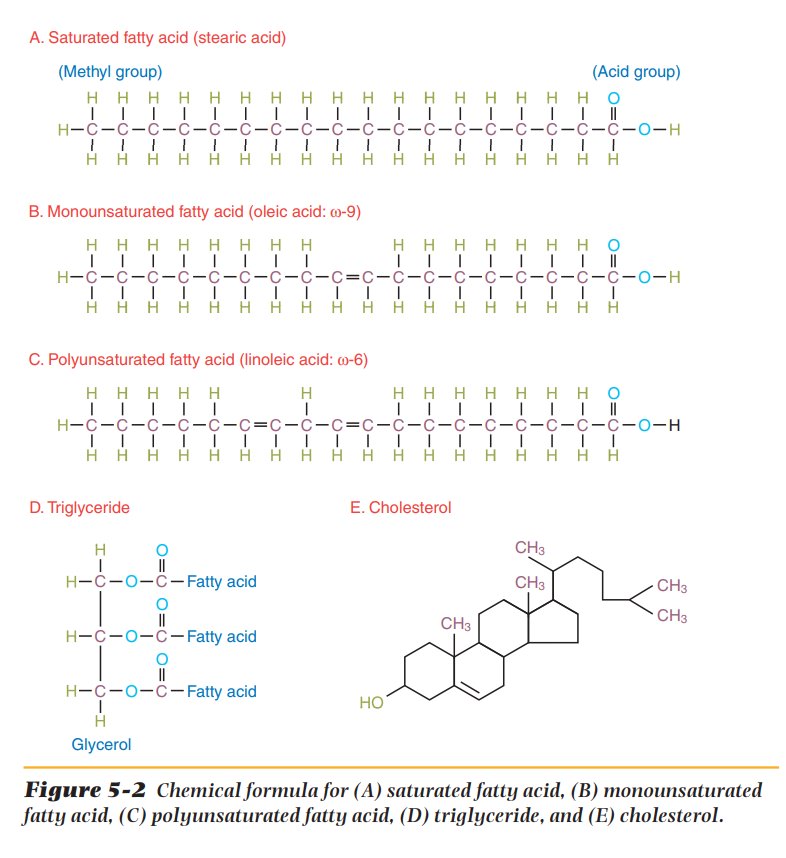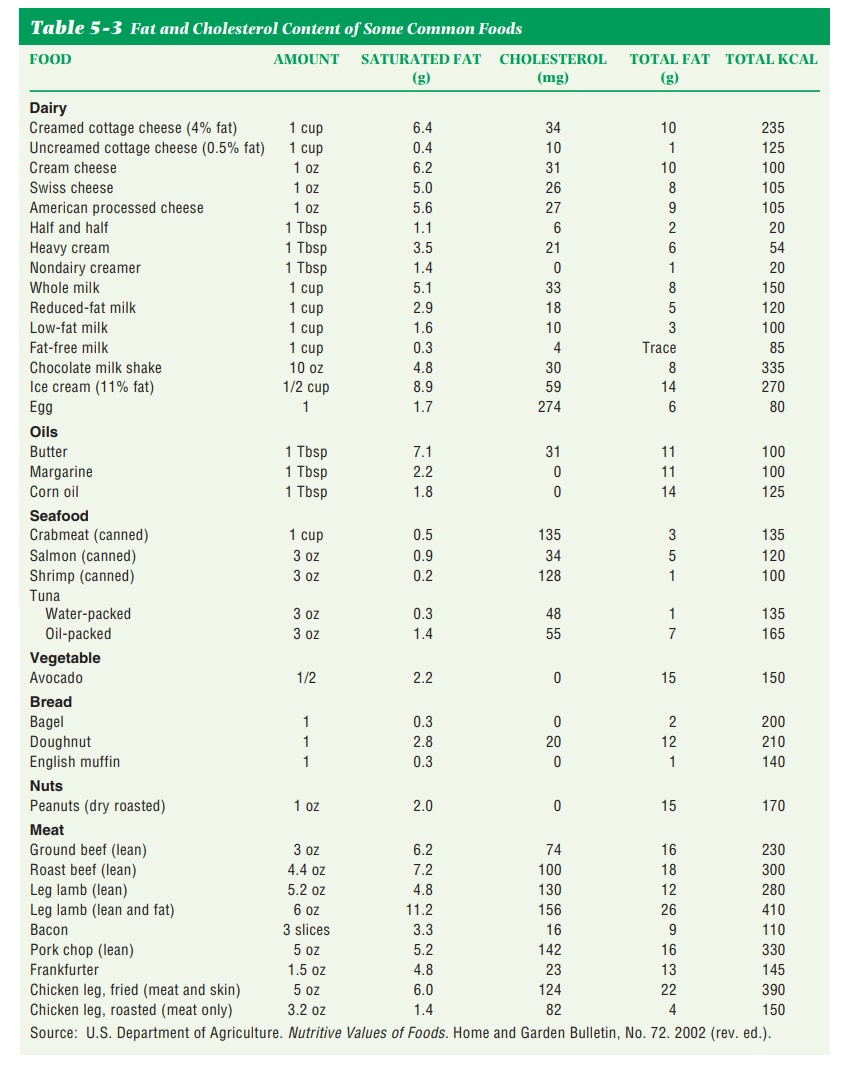Chapter: Nutrition and Diet Therapy: Lipids or Fats
Cholesterol
CHOLESTEROL
Cholesterol is a sterol (Figure
5-2). It is not a true fat but a fatlike substancethat exists in animal foods
and body cells. It does not exist in plant foods. Cholesterol is essential for
the synthesis of bile, sex hormones, cortisone, and vitamin D and is needed by
every cell in the body. The body manufactures 800 to 1,000 mg of cholesterol a
day in the liver.

Cholesterol is a
common constituent (part) of one’s daily diet because it is found so abundantly
in egg yolk, fatty meats, shellfish, butter, cream, cheese, whole milk, and
organ meats (liver, kidneys, brains, sweetbreads) (Table 5-3).
Cholesterol is thought to be a contributing factor in heart disease be-cause high serum cholesterol, also called hypercholesterolemia, is common in clients with atherosclerosis.

Atherosclerosis is a cardiovascular disease in which plaque (fatty deposits
containing cholesterol and other substances) forms on the inside of artery
walls, reducing the space for blood flow. When the blood cannot flow through an
artery near the heart, a heart attack occurs. When this is the case near the
brain, a stroke occurs.
It is considered
advisable that blood cholesterol levels not exceed 200 mg/dl (200 milligrams of
cholesterol per 1 deciliter of blood). A reduction in the amount of total fat,
saturated fats, and cholesterol and an increase in the amounts of
monounsaturated fats in the diet, weight loss, and exercise all help to lower
serum cholesterol levels. Soluble dietary fiber also is considered help-ful in
lowering blood cholesterol because the cholesterol binds to the fiber and is
eliminated via the feces, thus preventing it from being absorbed in the small
intestine. In some cases, medication may be prescribed if diet, weight loss,
and exercise do not sufficiently lower serum cholesterol.
Because the
development of plaque is cumulative, the preferred means of avoiding or at
least limiting its development is to limit cholesterol and fat intake
throughout life. If children are not fed high-cholesterol foods on a regular
basis, their chances of overconsuming them as adults are reduced. Thus, their
risk of heart attack and stroke is also reduced.
Related Topics